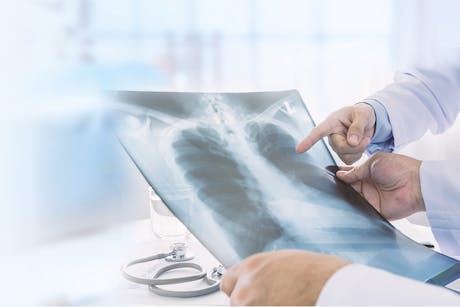Talk to your patients who smoke or have smoked about getting a lung cancer screening.
A low-dose CT scan can find lung cancer in your patients before they experience symptoms. Studies have shown that this form of screening can detect cancer when it’s most treatable — reducing the risk of dying of lung cancer.

Who Should Be Screened?
Your patients should be screened if they:
- Have smoked a pack of cigarettes a day for 20 or more years, or two packs a day for 10 or more years
- Currently smoke or have quit smoking within the last 15 years
- Are between 50 and 80 years old
Your patients should be screened if they:
- Has not smoked for 15 years
- Develops a health problem that substantially limits life expectancy or the ability or willingness to have curative lung surgery
Updated in April 2021
How to Schedule a Lung Cancer Screening
- Discuss the screening with your patients.
- Suggest enrolling in the Delaware Quitline if the patient still smokes.
- Have your patients sign the referral/consent form.
Lung cancer is the leading cause of cancer death. A low-dose CT lung scan may save your life.
Dr. Stephen Grubbs talks about the importance of lung cancer screenings for your patients.
Patient Education Materials for Your Office
Helpful links
Order Free Materials
Printed brochures, fact sheets, and other materials are available to order for your practice, free of charge.
See what’s available to order nowView Quality Cancer Data
Information is collected on new cancer cases, cancer treatment, and cancer deaths by the Delaware Cancer Registry. This ongoing source of data helps you and other providers measure the quality of cancer care in Delaware.
Learn morePatient Cancer Programs and Services
Learn about all the programs available to help your patients get screened and treated for cancer, along with services that offer help with cancer care coordination and navigation as well as survivorship.
Learn more